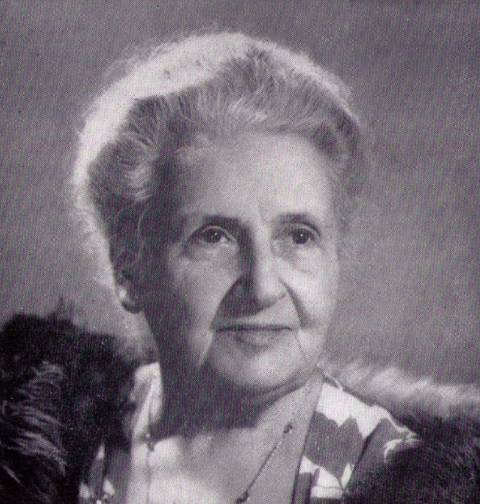ÉCOLE MONTESSORI MEYRIN CHARTER

Montessori’s pedagogy, spread over all five continents, sees the child as the father of man and grants all the necessary importance and attention to the development of this future human being, conscious of his responsibilities and capable of forming harmonious relationships with his fellow man and personal environment.
Maria Montessori (1870-1952) was one of the first to advocate for the recognition of general children’s rights and, more specifically, for their right to an education in accord with their particular needs. Convinced that education was a “weapon” for peace, Maria Montessori made the following statement in 1932 before the International Office for Education in Geneva:
“The crisis we are witnessing is not the passage from one era to another. New beings are appearing at the same time as, on the earth, conditions of life never before seen are being realized. The child is an entity in itself, a pole of humanity: the adult to come cannot be built harmoniously if the child has not been realized harmoniously.”
We must build a social environment, a new world for the child because “the incarnation of the human personality must be realized in him.”
INSTITUTIONAL CHARTER
MISSION
Ecole Montessori Meyrin is committed to:
- transmitting Maria Montessori’s pedagogical philosophy in its integrity. Consequently, we are transmitters of culture, as well as of human, social, and psychological qualities.
- teaching using a pedagogy that respects the human being and is adapted to the development of the young child.
OUR VISION OF EDUCATION
Our vision of education takes into account the personality of the child in all its aspects and proposes tools adapted to the child’s needs.
Our pedagogical foundation is Maria Montessori’s educational philosophy. The application of this thinking has been enriched by experience accumulated over many decades in all parts of the world. New discoveries concerning the physical, psychological, intellectual, and spiritual development of the young child tend to enlighten the proposed practice.
OUR VISION OF THE HUMAN BEING
The child is the father of man and his potential can be developed or remain unrecognized depending on the environment he is offered. This is especially true during the first six years of life. These years, when physical, psychological, and intellectual developments take place, can be decisive for the construction of the personality, the way of apprehending the environment, and acting within it in the future.
Those raising and working with children must be aware of the importance of their own personal attitude, of the environment, and of the objects offered to the young child. The educational vision and its application have consequences for the individual future of the child and an undeniable social impact.
SCHOOL CULTURE
1. Excellence in service to the human being:
Our teachers are open-minded and have a solid training in Montessori education.
Collaboration, mutual support, self-discipline, and a good attitude are constant values in our relationships between teachers and students.
We are committed to developing and expanding our skills through regular professional development.
We maintain regular contact with AMI training centers in order to continually adjust our teaching.
2. Universality and collaboration :
As diversity is a source of richness, we accept children from all cultural, social, and religious backgrounds.
We share our experiences with traditional educators and teachers.
We maintain links with those in the early childhood world: thinkers, pedagogues, psychologists, pediatricians, and caregivers in Switzerland and abroad.
We attend and participate in as many educational research conferences as possible.
We cultivate a spirit of openness with any association or organization that defends the inalienable rights of children.
HIGH DEMANDS
Choice of teachers
We are committed to choosing people of integrity, with proven human qualities and professional skills (in possession of a solid Montessori training, practical experience with young children). We choose people who are aware of our educational objectives and the important role they have to play, and who are also willing to follow additional training.
Choice of assistants
Our classroom assistants are people who are motivated by the harmonious development of the child, willing to question themselves, and aware of the importance of their mission. They are ready to offer a prepared environment and adopt the necessary attitude to meet the needs of the children.
Confidentiality of information
Out of respect for human rights and children’s rights, our Children’s House assures the confidentiality of any information collected and ensures every collaborator is respectful of personal information.
ORIENTATION TOWARDS FAMILIES’ NEEDS
Correspondence with current pedagogical orientations
Today, early childhood institutions agree on the need for:
individualized teaching that takes into account the personal evolution of each child
the importance of self-activity in the construction of the personality
the link between psychomotricity and the development of intelligence
the pedagogical value of a self-correction
the educational quality of mixed-age classes
The Montessori pedagogy has decades of experience in the application of these principles; this pedagogical option fits perfectly into the educational projects promoted today by public institutions. What we offer corresponds to a real social need – parents’ and educators’ desire for an education in line with the needs of their children, thus allowing their full development.
AFFILIATION AND CERTIFICATION
Montessori School Meyrin School is:
- A member of the Association Montessori Internationale (AMI) and the Association Montessori Suisse (AMS)
- A member of the Association Genevoise des Ecoles Privées (AGEP) and of the AIPE (Association Inclusion Petite Enfance)
- Swiss School Impulse certified (quality certification comparable to the ISO standard in the field of education, granted by Edelcert)
